Counting skills Addition Facts Worksheets for Ages 4-5
8 filtered results
-
From - To
Welcome to our Counting Skills Addition Facts Worksheets for ages 4-5! Designed to encourage early math learners, these engaging worksheets provide a fun and interactive way for young children to master addition through counting. Each activity focuses on foundational skills, helping little ones recognize numbers, understand quantities, and build confidence in basic addition. With vibrant illustrations and simple instructions, these worksheets cater to various learning styles. Ideal for classroom or home use, they promote hands-on learning, ensuring proficiency in addition facts while making math enjoyable! Start your child’s journey to mathematics mastery today with our thoughtfully crafted resources.
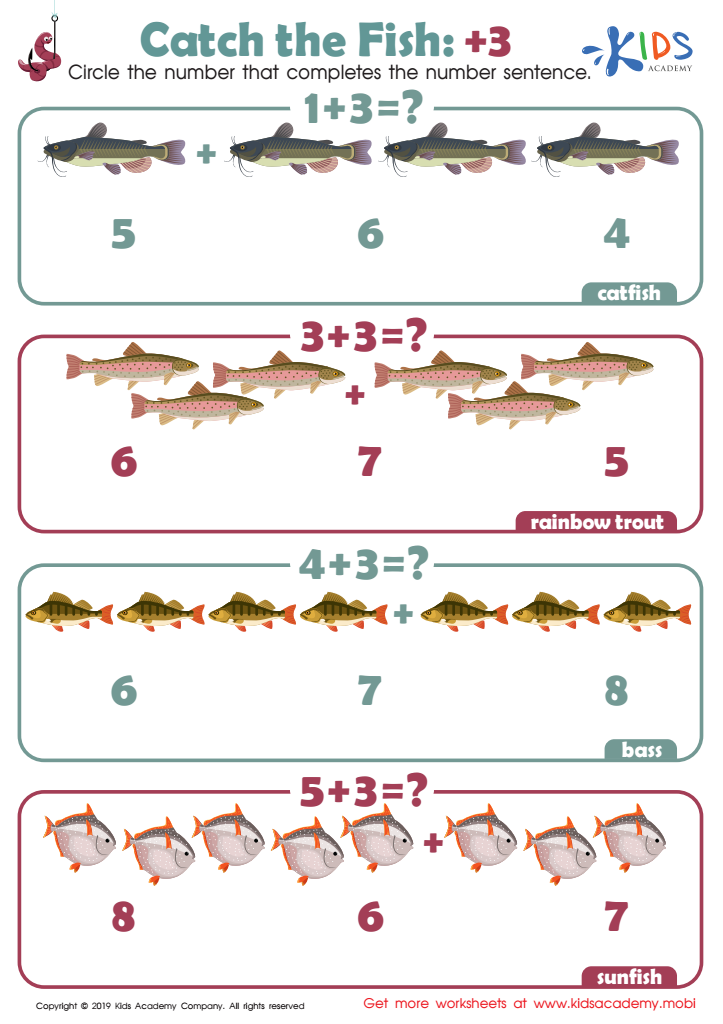

Catch the Fish: +3 Worksheet
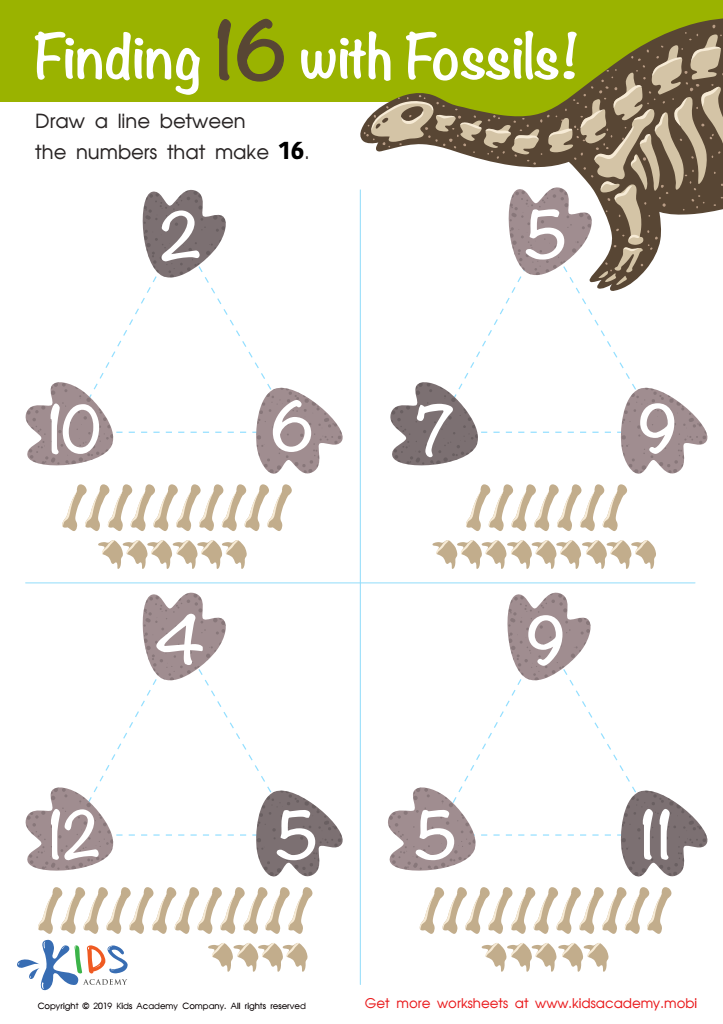

Finding 16 With Fossils Worksheet
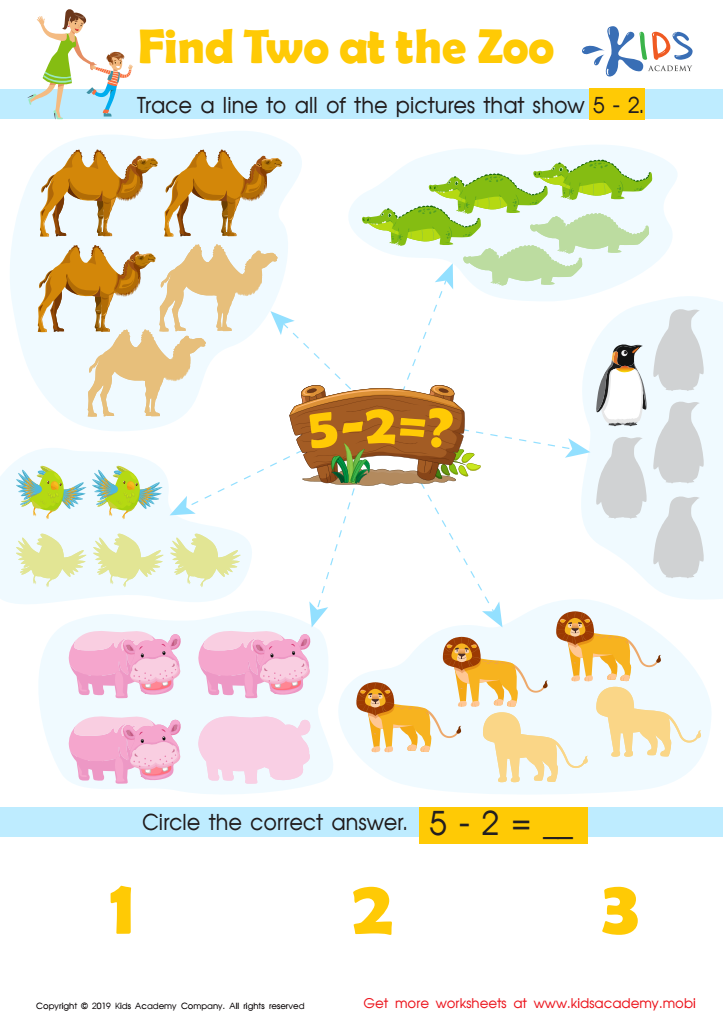

Find Two at the Zoo Worksheet
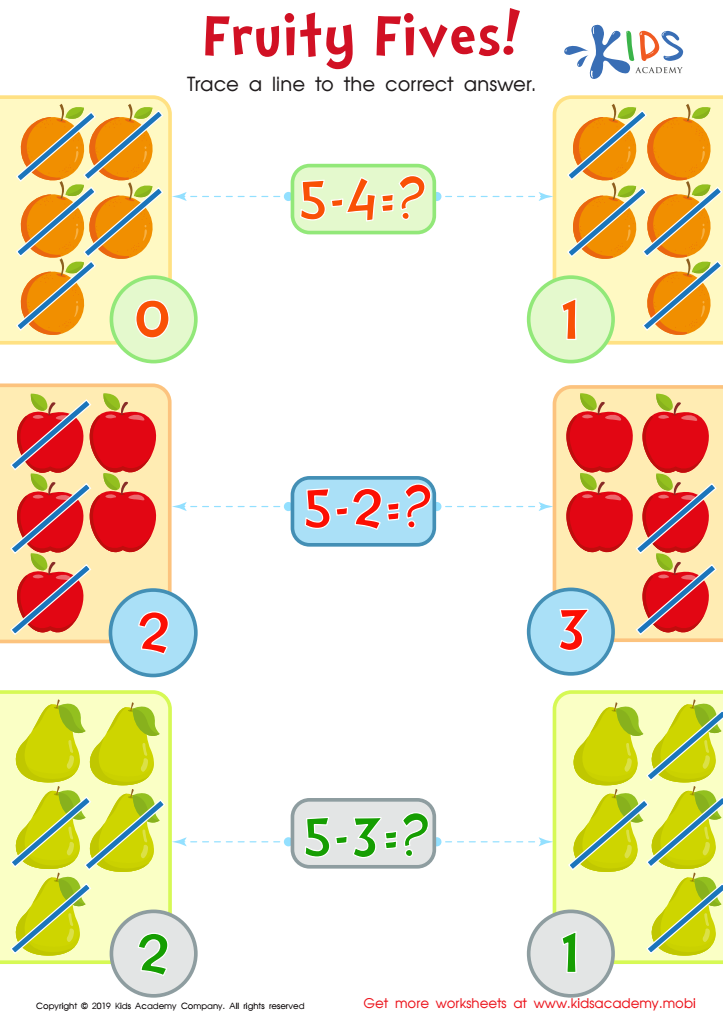

Fruity Fives! Worksheet
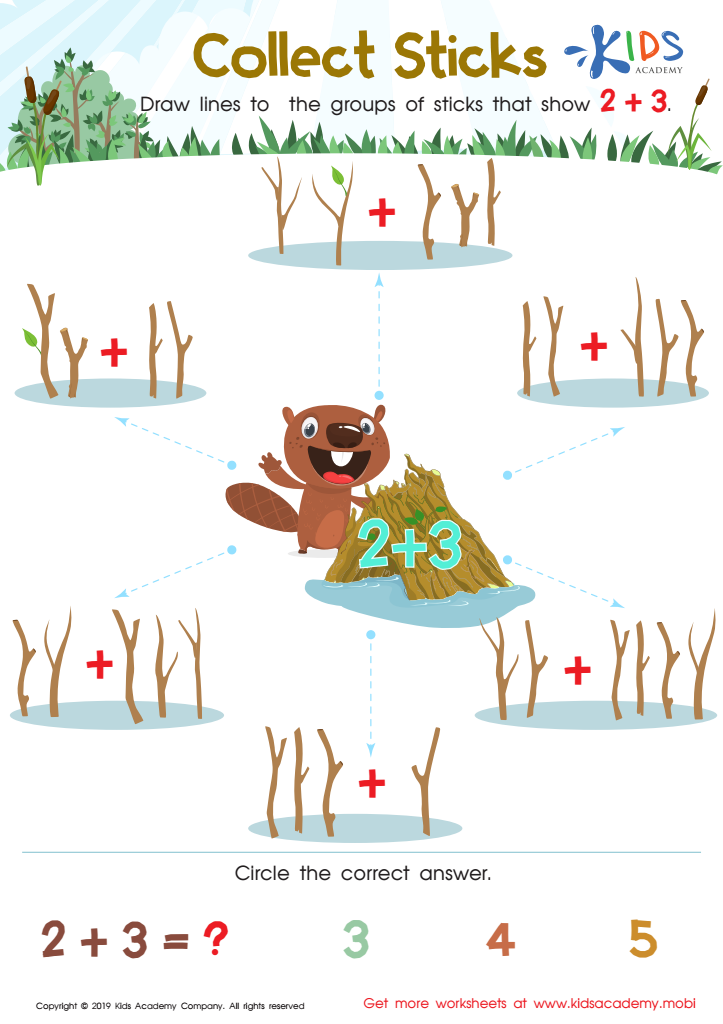

Collect Sticks Worksheet
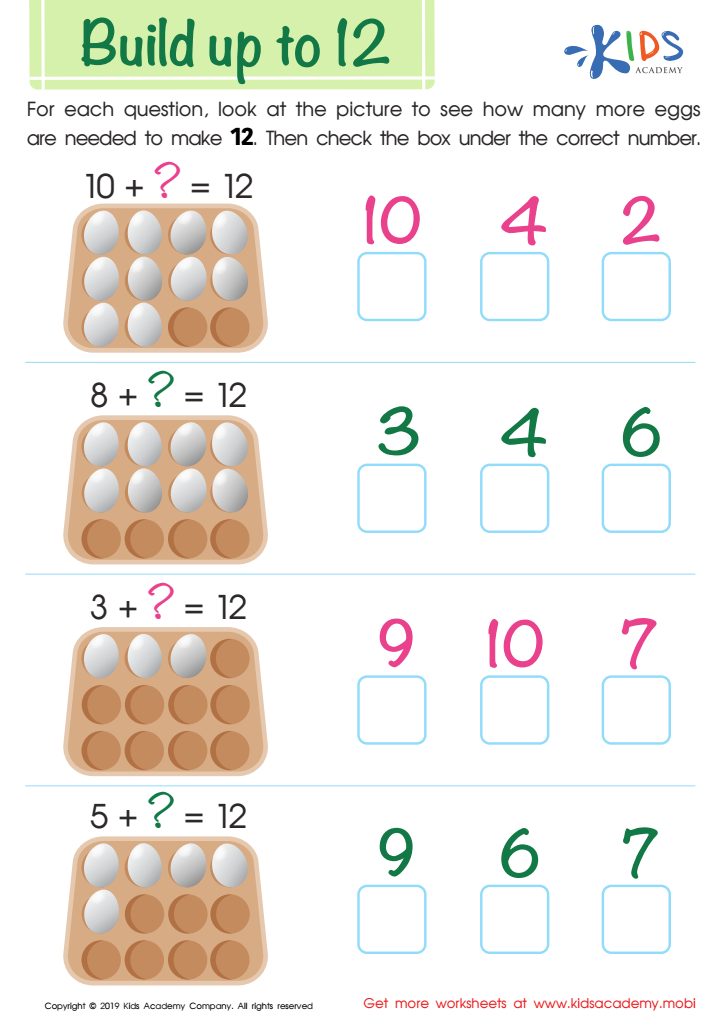

Build up to 12 Worksheet
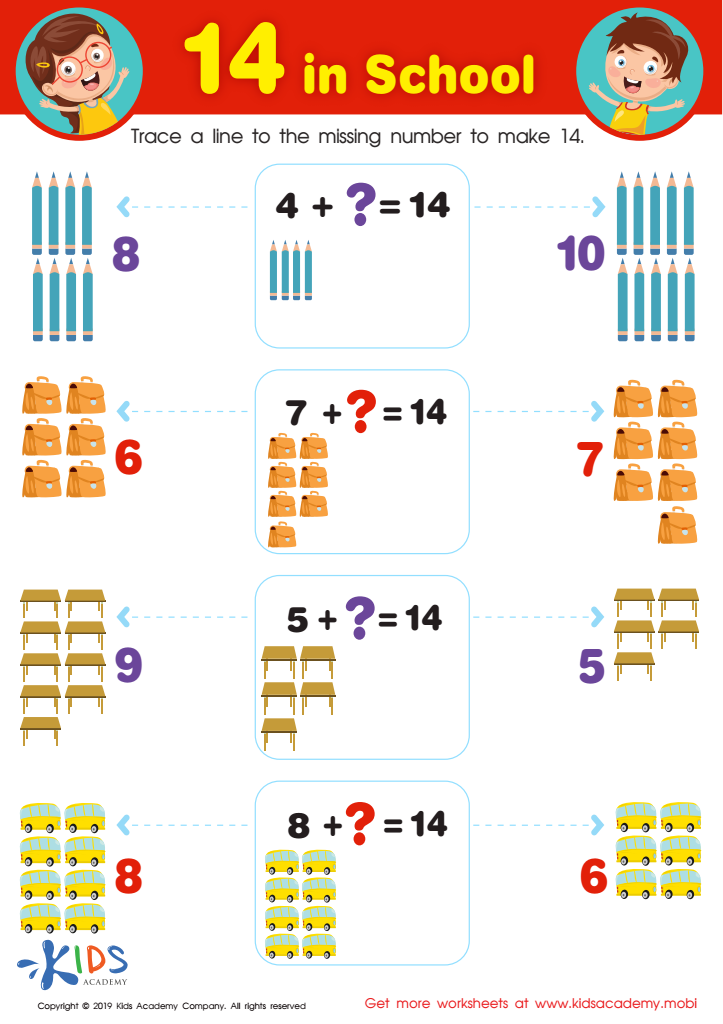

14 in School Worksheet
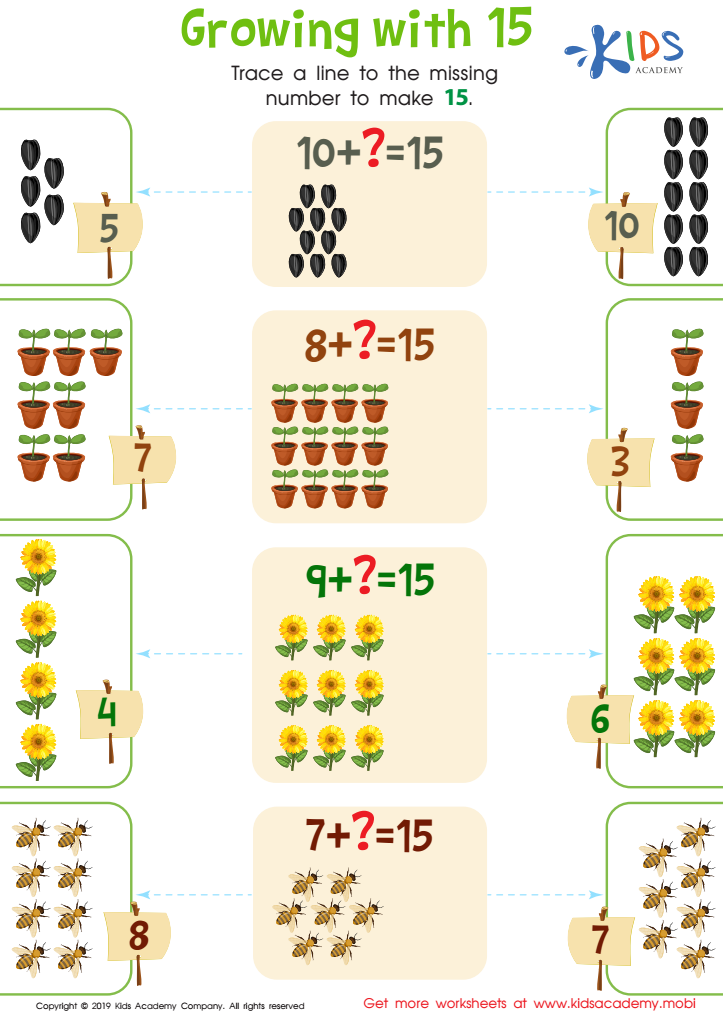

Growing with 15 Worksheet
Counting skills and addition facts are foundational components of early mathematics education for children ages 4-5. During this critical stage of development, children begin to explore numbers, understand quantity, and develop a strong sense of numeracy that will influence their future learning. Parents and teachers should prioritize these skills for several reasons.
Firstly, counting helps children recognize how numbers relate to their everyday lives, fostering a sense of confidence and proficiency in handling mathematical concepts. Mastering counting enables young learners to tackle more complex operations with ease later on.
Additionally, introduction to simple addition facts lays the groundwork for problem-solving skills. By practicing basic addition, children learn to analyze problems, think critically, and apply logical reasoning. These skills are essential not only in mathematics but also in various aspects of daily life.
Moreover, engaging children in fun counting activities, such as games and songs, can significantly enhance their enthusiasm for learning math. Parents and teachers who nurture these early competencies promote a positive attitude towards mathematics, reducing eventual anxiety related to the subject.
Overall, cultivating counting skills and addition facts is crucial for building self-esteem, fostering enjoyment in learning, and setting the stage for future academic success.

 Assign to My Students
Assign to My Students
















